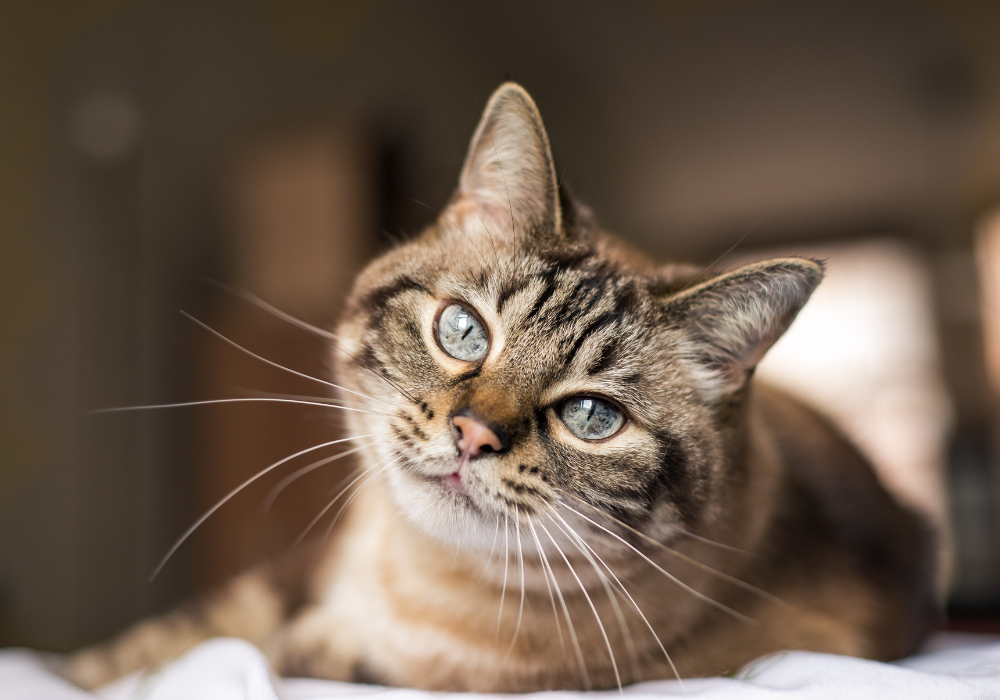Introduction
Discover the main causes of vomiting in cats, from hairballs to serious illnesses. Learn how to recognize the symptoms and when to consult a veterinarian.
Vomiting in cats is a common concern in veterinary clinics. Many reasons can explain why your cat is vomiting, whether it’s due to acute or chronic causes. The presentation of symptoms varies depending on the cause, and it is crucial to consider their severity.
Let’s look together at the main reasons for vomiting in cats and find out how to manage them effectively.
1. Hairballs
Your cat spends a lot of time grooming, ingesting fur that can accumulate in its stomach and form hairballs. These hairballs can irritate the stomach and cause vomiting. Fortunately, these hairballs are usually visible in the vomit. To avoid this problem, consider preventive treatment like using specific hairball laxatives.
2. Diet
A sudden change in diet can disrupt your cat’s digestive system. Cats are sensitive to changes in their food and certain ingredients, which can lead to food intolerances and cause vomiting.
Make sure to introduce any new food gradually by mixing a small amount of the new food with the old over a period of 7 to 10 days. This will allow your cat to get used to the new diet without upsetting its digestive system. If you suspect a food intolerance, consult your veterinarian to identify the problematic ingredients and choose a diet tailored to your cat’s specific needs.
3. Poisoning : Toxic substances for your cat
Cats can accidentally ingest toxic substances such as plants, household chemicals, or human medications. These substances can cause toxicity in the stomach and intestines, as well as toxic effects on the kidneys or liver. It is essential to keep all chemicals, medications, and potentially toxic plants out of your cat’s reach to prevent these incidents.
Here are the main toxic substances for cats:
-
Certain plants
Lilies, Poinsettia, Dieffenbachia, Philodendron, Aloe vera, Mistletoe and Tulips.
-
Household products
Including cleaners, detergents, antifreeze, disinfectants and pesticides.
-
Human medications
Acetaminophen (Tylenol), Ibuprofen (Advil, Motrin), Aspirin, Antidepressants and Heart medications.
-
Certain foods
Chocolate, garlic, onions, grapes, raisins, alcohol, caffeine.
-
Other substances
Beauty products (such as lotions and sunscreens), essential oils, certain DIY products (such as glues and paints).
If you suspect ingestion of a toxic substance, contact your veterinarian immediately. Depending on the substance ingested, emergency hospitalization and supportive care may be necessary.
4. Intestinal parasites
Infestations of parasites, such as intestinal worms, are a common cause of vomiting in cats, especially in young ones. Parasites irritate the intestinal lining, causing nausea, vomiting, and sometimes diarrhea. Not only can these infestations cause discomfort for your cat, but they can also lead to health issues.
A proper deworming treatment usually resolves this issue by eliminating the intestinal parasites. It is recommended to deworm your cat regularly, even if they do not show visible symptoms, to prevent these infestations.
5. Infectious diseases
Certain infectious diseases, such as feline panleukopenia or feline infectious peritonitis (FIP), can cause severe vomiting. These serious diseases are often accompanied by symptoms such as diarrhea, fever, and lethargy. If your cat shows these symptoms, consult a veterinarian promptly.
6. Gastrointestinal issues
Conditions like gastritis, enteritis, colitis, pancreatitis, and hepatitis can cause vomiting due to chronic inflammation or irritation of the gastrointestinal tract. A veterinarian can recommend appropriate treatments to relieve these conditions.
7. Systemic disorders
Systemic diseases such as kidney failure, hyperthyroidism, or diabetes can lead to vomiting. These diseases affect various organs and can indirectly cause digestive disturbances. Additional symptoms such as weight loss, changes in appetite, or excessive drinking and urination may also be present.
8. Intestinal obstruction
Ingestion of foreign objects, such as toys or pieces of plastic, is common in young cats. These objects can cause intestinal obstruction, leading to frequent and violent vomiting. Emergency surgical intervention is often necessary in these cases.

Conclusion : Consult Your Veterinarian if in Doubt
Vomiting in cats can have many causes, ranging from dietary issues and hairballs to serious illnesses and systemic disorders.
Monitor your cat’s vomiting closely and consult a veterinarian promptly if vomiting persists or is accompanied by other concerning symptoms. A thorough veterinary evaluation is essential to determine the underlying cause and implement the appropriate treatment. Additional tests such as blood tests, X-rays, ultrasounds, and stool analyses may be necessary to pinpoint the cause of the vomiting.
For the well-being of your feline companion, do not hesitate to schedule an appointment with our veterinary team today. We are here to support you and answer all your questions!
